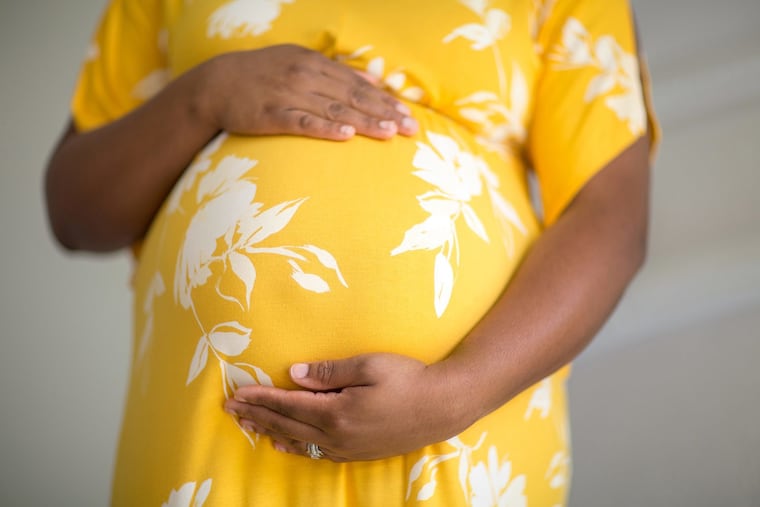Collective action is needed to transform the painful legacies of Black maternal health
At Maternity Care Coalition, as we mark Black Maternal Health Week, we are reminded that behind every statistic is a human being deserving of compassionate, equitable care.

As the daughter of Jamaican immigrants who fled KKK violence in Alabama — where my sister was born in a doctor’s office because my mother was denied care in a segregated hospital — I understand the intergenerational impact of medical racism.
My experience delivering a stillborn son at 18, alone in a hospital room despite my mother working in that very hospital, showed me how the health-care system can strip away dignity from Black women at their most vulnerable moments.
And my three complicated pregnancies — all resulting in C-sections, one child born at just 2 pounds, 15.5 ounces — taught me the critical importance of informed advocacy.
All of these experiences are representative of centuries of systemic barriers, medical racism, and inequitable access that impact the quality of care for Black women and birthing people in our nation.
The statistics alone are alarming: Nationally, Black women are three times more likely to die from pregnancy-related complications than their white counterparts. In Philadelphia, racial disparities in birth outcomes persist. The 2020 report by the Philadelphia Maternal Mortality Review Committee found that non-Hispanic Black women made up 43% of births in Philadelphia from 2013 to 2018, but accounted for 73% of pregnancy-related deaths.
But behind these numbers are real families navigating largely preventable tragedies — mothers, partners, children, and communities forever altered by losses that should never have occurred.
I have witnessed both the persistent challenges and remarkable resilience of Black mothers through the work of the organization I lead, Maternity Care Coalition (MCC) — which for the past 45 years has provided direct service, community education, coalition building, research and evaluation, and policy and advocacy for mothers and birthing persons in Pennsylvania.
» READ MORE: America’s maternal care system dehumanized me. I became a doula to change it. |Opinion
Our public health systems and policies are rooted in historical racism, setting them up to fail our communities time and time again. Meaningful change requires both immediate intervention and long-term systemic transformation, along with commitment to providing dignified and respectful care.
At MCC, that means when a young mother in North Philadelphia receives prenatal support from a staff member who understands her cultural background and life circumstances, she can enter the health-care system with greater confidence and knowledge.
Or when a family in Delaware County has a trained advocate by their side during labor and delivery, medical providers listen more attentively to their needs and concerns.
And when a postpartum parent in Montgomery County receives regular home visits, they’re less likely to fall through the cracks of our fragmented health-care system.
The most meaningful advances in social justice have come when diverse stakeholders unite around a common purpose and sustain their commitment through setbacks and obstacles.
I firmly believe that when hospital systems partner with community-based doula programs, maternal care becomes more responsive to families’ needs. When legislators hear directly from affected communities, policies shift to expand access and accountability. When neighbors support neighbors through pregnancy and postpartum, the isolation that often accompanies new parenthood diminishes.
As we mark Black Maternal Health Week from April 11-17 — an annual national campaign founded and led by the Black Mamas Matter Alliance to amplify the voices, perspectives, and lived experiences of birthing people — we are reminded that behind every statistic is a human being deserving of compassionate, equitable care.
This year’s theme, “Healing Legacies: Strengthening Black Maternal Health Through Collective Action and Advocacy,” is a reminder that each of us has a role to play in ensuring Black maternal health care moves from a painful legacy to a healing future.
In an example of collective action to that end, MCC is proud to be part of the Philadelphia Maternal Mortality Review Committee, which has determined recommendations to reverse the tide on maternal health.
» READ MORE: Black Maternal Health Week is a time for reflection and joy | Opinion
Use your voice to advocate for policies that promote equity in maternal and child health. Listen to and amplify the voices of Black women and birthing people. Educate yourself about the history and current realities of racism in health care.
Together, we can transform painful legacies into healing futures — not just for some families, but for all.
Marianne A. Fray is the president and chief executive officer of Maternity Care Coalition, which serves parents and families impacted by racial and social inequities in Pennsylvania and Delaware.